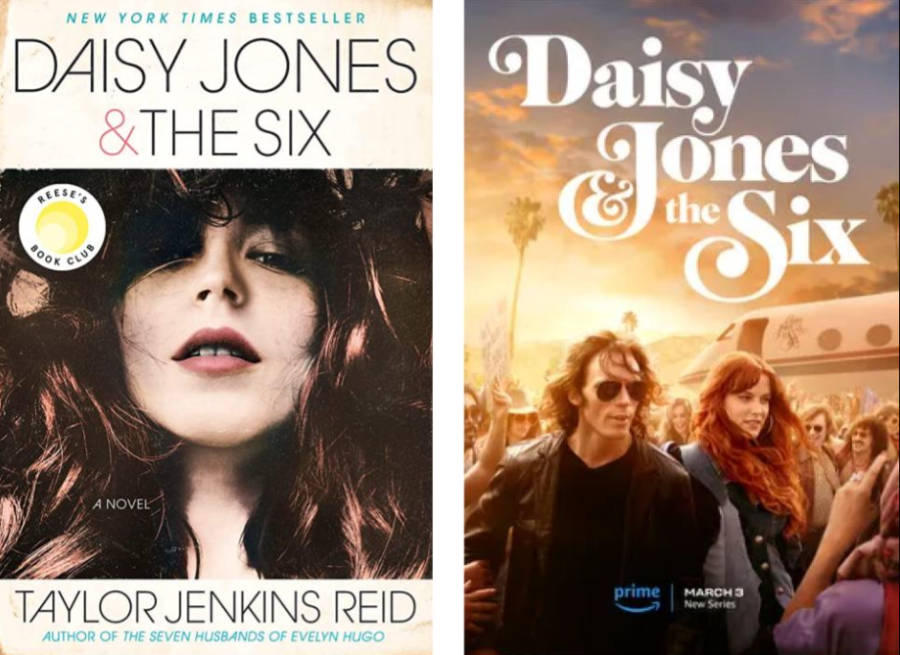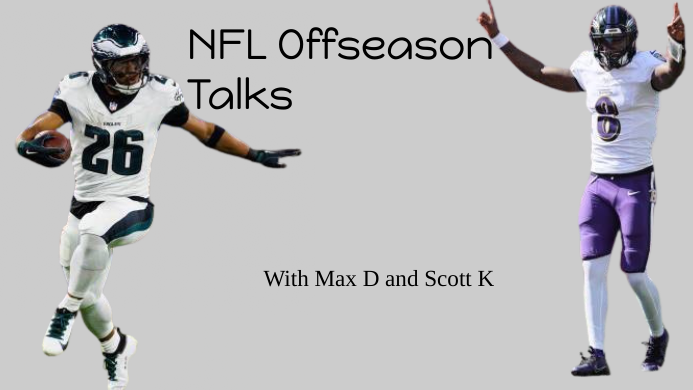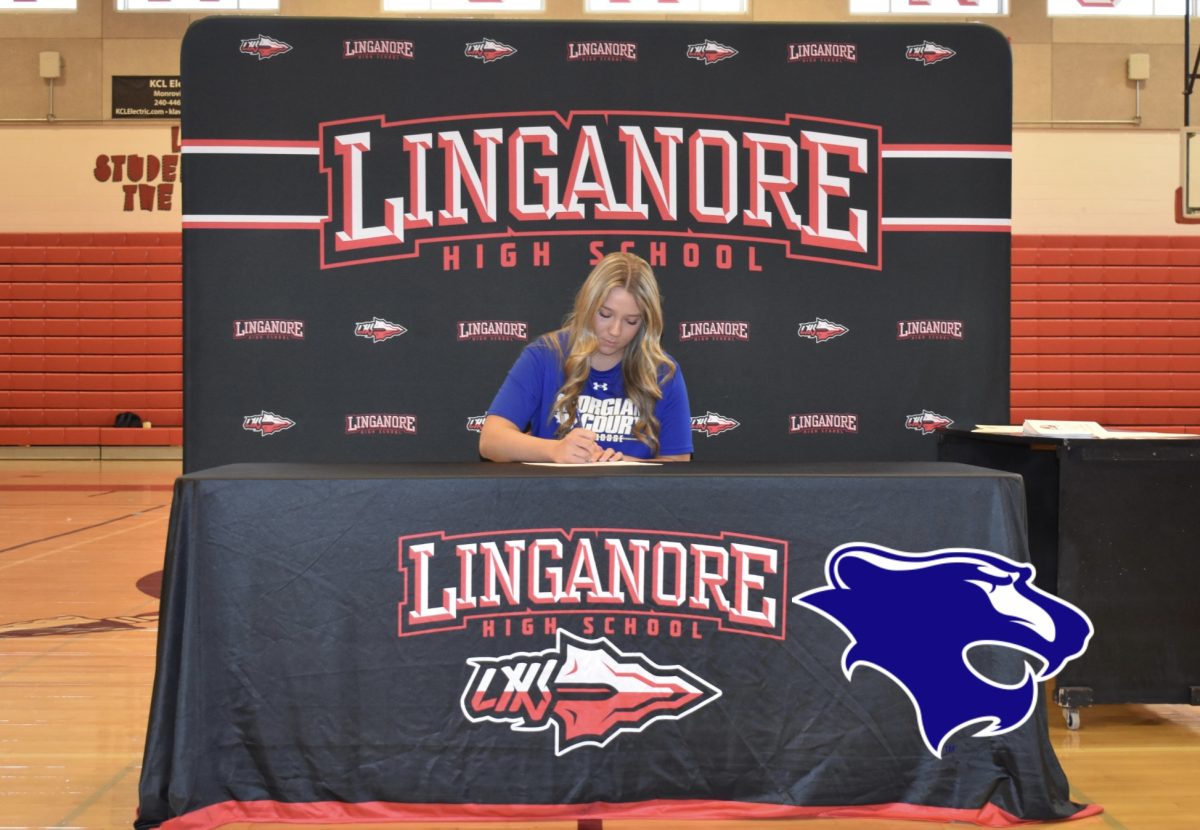Are the books really better than the movies?
Taylor Jenkins Reid, Amazon Prime
“Daisy Jones and the Six” is a novel that has just been released in a TV show format on March 3.
March 20, 2023
An author announces their book is being adapted into a movie and a mix of reactions occur: some people are filled with joy, others are angry over the way it is being done, and even otherse want to gate-keep the book.
This is a never-ending debate. Do the films ever live up to what the world the book has constructed? Fans are excited to see their favorite scenes come to life; yet, they are almost never satisfied with what they just watched.
The question is: was the movie really that anticlimactic, or is it just human nature to set unrealistic expectations?
In recent years, the demand for screen adaptations has increased. Companies have more money, more talent to work with and more opportunities, especially for series, to turn a writer’s words into visual showpieces.
Movie adaptations have always been part of a larger conversation. These movies bring in people who do not enjoy reading; they convey the visual stimulation that some need for entertainment.
Yet, in a large survey done by Super Summary, it was found that an average of 34% of respondents prefer the books to the movies, while 27% favor the screen adaptation.
The higher statistic for book lovers exists for a reason. For years and years, the world has been preaching that books are better than movies, but why?
Well, for one, books hold so much information within their pages. The average book is around 70,000 words long, with each word intentionally selected. Just one word has the power to change the course of the whole book. With that in mind, it seems impossible that screenwriters would willingly take out so many details for the sake of time.
Books are very specific in what they portray, and most of the time, these elements get lost when the screenwriter takes control of the script and makes their own adjustments.
“We have to remember that these are adaptations, and it’s [the story is] someone else’s vision,” English teacher Randi Kirkland said. “If you rely solely on the movie adaptation, you lose what the author’s artistry was intending, and I think that they developed these characters with a very specific blueprint.”
Not only does the author convey their ideas clearly in a book, but the reader gets to make their own judgements as well. When reading a book, everything is in the reader’s imagination. The appearance of the characters, the settings, the looks and the tone of words are all interpreted in the way the reader chooses.
This open nature of books raises a problem for some. Media is supposed to be leisurely, but is it all that relaxing if one would have to think about every word? In some instances, when a book contains mundane, uninspired writing, the author may put one in a position where the writing is almost boring to think about.
However, this is also a reason a lot of people prefer reading: gaining a sense of freedom in the stories and interpreting the text just the way they want.
“I really enjoy being able to create the movie reel myself in my head,” Kirkland said.
That imagined movie reel ends up being many hours long, as opposed to the much shorter two hours of a feature film. This time is crucial, especially when it comes to characters and character development.
Just as it does with any person in real life, getting to know someone takes time. When reading, one is capable of finding a deeper layer beneath the surface of the character, getting inside their heads more. A movie is incapable of conveying these character complexities.
“They can’t really fix this because you can’t make an eight-hour long movie, but I feel like with character development, it’s harder to understand it how you do in the book,” Linganore freshman Ela Curran said. “In books, I feel like it takes time to get to know the characters emotionally, [psychologically] and physically while in the movie it is just like, ‘here’s the person.’”
In a world where media is shoved in people’s faces from the moment they are born, it can be hard to remember that some things take time. Faster is not always better, and when the information is given with more detail and intention, more benefits could be achieved.
One of these benefits is the higher enjoyment level. Aditionally, reading can also substantially improve brain development. PubMed Central found that reading stimulates many different areas of the brain, especially the somatosensory cortex, which is the part of the brain that responds to physical sensations such as movement and pain.
Another physical benefit of reading is the reduction of stress, which is something that most high school students experience in great quantities. A study published by the Journal of College Teaching & Learning determined that just 30 minutes of reading leads to lower blood pressure, heart rate, and feelings of psychological distress.
Meanwhile, the blue light from watching movies and TV can cause headaches, vision problems, retina damage and trouble sleeping.
Although large sums of people favor books, movie adaptations are not always second-rate. Sometimes, movies can clarify things that one read but did not quite understand.
“Once you watch the movie, everything makes more sense,” Curran said. But, on the other hand, “I also understood things in the movie that I wouldn’t have if I hadn’t read the book.”
In some ways, a movie has the ability to really pull details together and bring the story full circle, but it could not have been done without the book. No matter how great the movie is, the book will always serve as the blueprint.
Even though in some regards movies can hold their own, ultimately, the novel will beat the film version nine times out of ten. Reading is a gratifying experience that no other activity can quite match.
The best part is that anyone can enjoy it. There is a book for everyone and everything; one just has to take the time to find what suits them. So, go out there and take a look.






